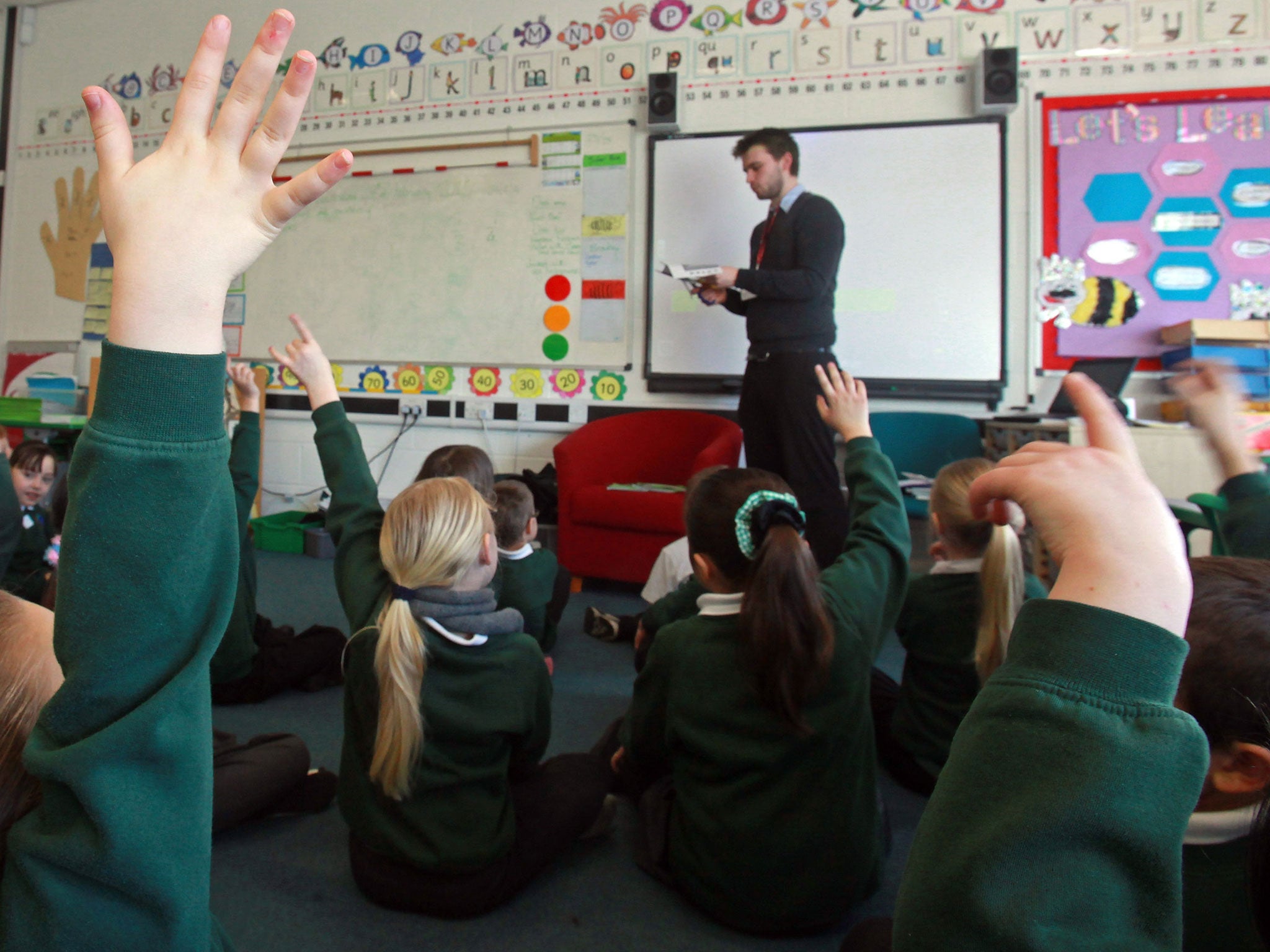Increasing numbers of primary school children permanently excluded over disruptive behaviour
Numbers reveal 200 excluded for assaulting an adult and 120 for assaulting a classmate

Rising numbers of primary school children are being permanently excluded from school for assaulting their fellow pupils or teachers or being permanently disruptive in the classroom.
Figures show the number of permanent exclusions of primary school pupils has risen 13.9 per cent in a year to 690 - with 20 three or four-year-olds and 40 five-year-olds (all boys) given their marching orders.
They were described as making for “sombre reading” by teachers’ leader Dr Mary Bousted, General Secretary of the Association of Teachers and Lecturers. “We know that exclusions have a huge impact on the life chances of these pupils.”
She added that the exclusion of extremely young children could have been caused by the impact of cuts to Sure Start centres - which offer help to the under-fives.
“Sure Start centres were the first casualties in many local funding cuts and it may be the increase in primary school exclusions, which include 60 boys of four to five years of age, is one of the consequences of this,” warned Dr Bousted.
Dr Bousted was backed by Russell Hobby, General Secretary of the National Association of Head Teachers, who added: “Cuts in specialist support services mean that many children with behavioural issues are not being spotted before they start at school.
“Schools are witnessing serious behavioural problems at ever younger ages - including violence and self-harm. Young children are also being exposed to adult themes in the media.
“Add this to cuts in services once provided by local authorities and eventually the problems escalate to a point where the education of other children suffers and schools have no choice but to exclude.”
A breakdown of the primary permanent exclusions reveals 230 were sent home for being persistently disruptive, 200 for assaulting an adult in the school and 120 for assaulting a fellow classmate.
The figures, published by the Department for Education today, show that - through the primary and secondary school sector in England - permanent exclusions rose from 5,080 to 5,170 following a steady decline in the exclusion rate in recent years.
Fixed term exclusion, when pupils were allowed back into school after a couple of days or a week, fell from 324,110 to 304, 370 - confirming a steady decline in recent years. However, here again, the fall was exclusively down to a drop in the exclusion rate in secondary schools.
In all, 162, 400 pupils - or 216 - in every 10,000 - received at least one fixed-term exclusion from school. Again, the most common reason was persistent disruptive behaviour - which accounted for 32.9 per cent of all permanent exclusions and 24.1 per cent of fixed period exclusions.
Boys were around three times more likely to receive a permanent or fixed term exclusion than girls. In addition, children entitled to free school meals were for times more likely to be permanently excluded.
The DfE research also showed that boys were far more likely to be excluded at a younger age than girls - but the most common age for exclusion for both sexes was 13 and 14.
An ethnic breakdown of the exclusion rates shows travellers’ children have the highest rates of permanent exclusion while black Caribbean and white and black Caribbean ethnic groups were around three times more likely to be excluded than the average pupil, a figure in line with previous years.
A spokesman for the DfE said; “Heads now have more power than ever before to ensure strong discipline in the classroom.
“The government is tackling the causes of exclusion by improving the quality of teaching, raising standards in literacy and numeracy. tackling disadvantage through the pupil premium. overhauling the special education needs system and making radical improvements to alternative provision.”
Subscribe to Independent Premium to bookmark this article
Want to bookmark your favourite articles and stories to read or reference later? Start your Independent Premium subscription today.

Join our commenting forum
Join thought-provoking conversations, follow other Independent readers and see their replies